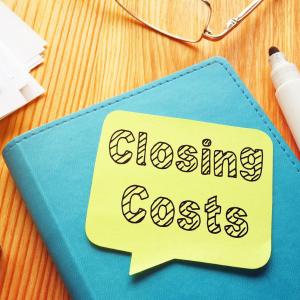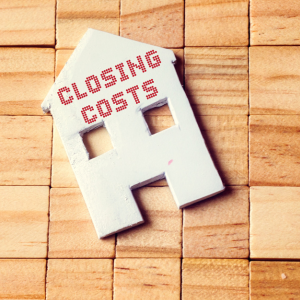
Selling a home in Alaska with Anchorage Home Buyers comes with unique financial considerations, especially around closing costs. Knowing which expenses may apply and how much sellers are responsible for can significantly impact your bottom line. This guide to seller closing costs in Alaska explains what to expect, offers insights into common fees, and shares strategies to save money. If you’re preparing to sell, learn how to maximize your profits and move through the process with confidence.
What Are Seller Closing Costs in Alaska?
Alaskan property sellers must understand closing expenses to maximize their rewards. Sellers pay closing costs from the time an agreement is struck until the time the property is sold. These expenditures may not be evident, but they can considerably impact your sale proceeds. Knowing what to expect when listing property in Anchorage, Juneau, or anywhere in Alaska will help you plan and negotiate, especially when considering additional factors like Homeowners Insurance When Selling a House and how it fits into your overall expenses.
Alaska real estate sellers pay mandatory and discretionary closing charges. Alaska seller closing costs include title insurance, escrow fees, transfer taxes, and real estate attorney fees. While each real estate transaction differs, Alaska sellers often face similar costs. Alaska sellers usually pay for title insurance, which protects buyers and lenders from property ownership claims. Terms vary by sale and local norms.
Alaska sellers may incur recording and document preparation fees to file the change of property ownership with the local government. Some sellers fund all or part of the buyer’s closing costs to speed up the deal. Whatever the reason, Alaskan sellers must recognize that every closing documentation line item can affect their house sale compensation.
Professional Service Fees and Other Closing Costs in Alaska
Professional service fees are another major closing cost in Alaska real estate deals. A commission based on the home’s sale price is usually the highest cost, although there are others. Understanding these fees helps sellers avoid surprises at closing, especially in a competitive Alaska real estate market where every dollar matters. Competitively priced homes with clear closing cost expectations attract serious buyers and simplify negotiations.
Seller closing expenses in Alaska vary per sale. Location, sales price, home condition, and market dynamics all matter. Due to municipal taxes and service charges, closing costs may fluctuate between Anchorage and rural Alaska. Each real estate sale may have unique contractual terms affecting closing costs.
Sellers who research Alaska’s real estate closing expenses have smoother deals. By factoring in title insurance, escrow fees, attorney expenses, and buyer incentives, sellers can price their houses realistically and avoid closing surprises. Alaskan sellers should analyze projected closing expenses to preserve their finances and optimize their selling strategy.
Who Pays Closing Costs in Alaska?

When you buy or sell Alaskan real estate, you need to know who pays the closing costs. In real estate deals, who pays the closing costs rests on the market, local customs, and the negotiations. There is no set amount that Alaskan buyers and sellers share for the closing costs.
Title insurance saves buyers and lenders from problems with who owns a property and liens. Most Alaskan sellers pay for it. These and the fees paid to the real estate agent make up most of the seller’s closing costs. During the whole process, from listing to closing, agents are very important, and buyers pay them a portion of the sale price. Sellers may have to pay transfer taxes, filing fees, and other fees to run the business. In areas with a lot of competition, sellers may pay some closing costs so that the deal goes through faster or better.
Alaskan buyers usually have to pay for things like financing and due diligence. The loan origination, assessment, house inspection, and credit report are some of the things that buyers usually have to pay for at closing. Taxes, escrow, and homeowner’s insurance are all paid for by the buyer. Everything can be changed, and if buyers have more power, sellers may be able to make more money by paying some of the buyer’s closing costs. Agents for both the buyer and the seller can come up with creative solutions that work out well for everyone and make the closing process simple and clear.
How Closing Costs Are Split Between Buyers and Sellers in Alaska
Even though Alaska has its own real estate rules, buyers and sellers need to know how to split the closing costs. In some Alaskan markets, sellers pay buyer fees. Real estate agents who know about Alaska may help buyers and sellers avoid shocks at closing, and their clarity may help sales.
Every Alaska real estate deal should include talks about the closing costs up front to keep both buyers and sellers informed. Clear talks about closing costs keep disagreements from happening at the last minute, make deals easier, and make things better for everyone. Alaska sellers could get buyers by paying for the closing costs or splitting the costs. Alaska closing costs should be looked at by both buyers and sellers to avoid shocks and get the most out of their next real estate move.
If you want to buy or sell a home, talk to Alaskan real estate agents as soon as possible. They will discuss market trends, closing costs, and the best way to split costs with the buyer to get the best results. In Alaska’s unique real estate market, the best ways to reduce stress and make a deal are to know your stuff, be honest, and be good at negotiating.
How Much Are Seller Closing Costs in Anchorage?
Knowing all the closing expenses can affect your financial planning and sales strategy when selling Anchorage property. Seller closing costs in Anchorage follow Alaska real estate market trends, but local fees, service charges, and competitive dynamics add distinct factors. Depending on the real estate transaction, Anchorage sellers pay closing charges between 5% and 7% of the sale amount. These fees include agent commissions and closing-related required and voluntary fees.
Let’s examine the main factors in Anchorage seller closing expenses. Real estate commissions, normally 4% to 6% of the home’s sale price, are among the highest costs. This percentage covers all the coaching, negotiating, and transaction oversight needed to sell a home in bustling Anchorage. Besides commissions, sellers must pay title insurance, escrow, transfer taxes, document preparation, and recording expenses. Since Anchorage has a strong property market and high-value residences, each charge is crucial to transferring real estate legally.
Title insurance, a major seller expenditure in Anchorage, protects buyers and lenders against ownership disputes and concealed liens. Alaskan customs require sellers to pay for the owner’s coverage, adding hundreds or thousands to the closing statement. Buyers and sellers often divide escrow fees neutrally to facilitate the transfer of money, paperwork, and keys. The value of the estate being sold and the intricacy of the transaction determine these fees, which often range from a few hundred to over a thousand dollars.
Transfer Taxes, Recording Fees, and Managing Seller Closing Costs in Anchorage

Recording and transfer taxes are also key Anchorage closing fees. Alaska has lower transfer taxes than other states, but Anchorage’s municipal rules force sellers to budget for them. Recording fees are required to register the property transfer with the local government, which increases closing costs. The closing disclosure for every Anchorage real estate sale details these charges, helping sellers estimate what would be removed from their ultimate revenues.
Anchorage sellers should also consider closing costs. If a buyer wants repairs after a house inspection, sellers may agree to pay a credit or do the renovations, affecting closing costs. To speed up sales in competitive Anchorage markets, sellers may offer to cover part of the buyer’s closing fees. These strategic moves can make Anchorage homes stand out, but they raise sale prices.
Before listing your Anchorage house, check your closing expenses. A thorough net sheet lists all projected fees, from title insurance and escrow to transfer taxes and administrative expenditures. Comparing estimated closing costs to homes in similar Anchorage neighborhoods might help you improve your strategy and save thousands on your real estate deal. Understanding and minimizing seller closing expenses will help you sell your Anchorage house faster, more profitably, and easily in Alaska’s largest and most dynamic real estate market. Connect with knowledgeable local specialists who can explain each fee and provide cost-saving options. Your preparation will pay you on closing day!
Key Factors Influencing Seller Closing Costs
Alaska real estate seller closing expenses depend on several things. Every Alaska seller must understand closing costs, even if preceding sections have covered average closing costs in key markets like Anchorage, and who pays what. Market dynamics, local trends, agent talks, buyer incentives, and title insurance pricing are important. Understanding how these components interact helps sellers anticipate changes, estimate closing costs, and effectively manage real estate transaction finances.
Impact of Market Trends on Closing Costs
The Alaska real estate market plays a major role in shaping seller closing fees from year to year. As conditions shift, sellers need to stay aware of changing costs, fees, and negotiation trends. In a strong market, agents may secure lower commissions and limit the pressure to contribute to buyer-side expenses. However, when inventory increases and the market cools, sellers may find themselves covering additional closing fees or transfer costs, giving buyers more negotiating power. Using a closing costs calculator can help sellers estimate these expenses more accurately.
Property market cycles affect seller costs. High-demand Alaska has many agents, thus homes sell fast. Competition may lower agents’ compensation, but sellers may receive multiple offers that waive buyer closing costs for speed. Sellers may pay extra for title insurance or escrow when buyer demand dips. Alaska regional trends may help sellers foresee closing statement cost increases or negotiations.
Alaska’s real estate market volume impacts title insurance and admin costs. Title and escrow businesses alter rates based on market conditions. High activity and title searches can raise prices, but slower markets allow sellers to browse and negotiate reduced title insurance rates. Sellers can minimize title insurance and closing package overpayments by working with trusted real estate agents who can spot seasonal trends and negotiate better terms.
Why Monitoring Trends Matters for Closing Costs in Alaska
Divergent buyer and seller expectations in Alaska’s property markets contribute. Buyers in competitive Anchorage may demand regional closing expenses, including transfer taxes and recording fees. Alaska sellers may compete and avoid outdated pricing by following market trends. In less competitive rural markets, sellers may pay less yet take longer to sell, increasing closing costs and negotiation fees.
Alaska’s real estate market changes agent contracts. By analyzing market trends and closing expenses, agents advise sellers strategically. This knowledge helps sellers compete by carefully covering escrow and title insurance. Checking recent sales, transfer taxes, title insurance, and escrow expenses can save.
Finally, Alaska sellers must watch market trends, commission changes, and buyer expectations to optimize closing costs. Local market conditions might affect how buyers and sellers negotiate transfer, title, and other fees in every real estate transaction. Working with specialists and adapting to these changes can help homeowners optimize earnings and reduce closing costs. Selling Alaska real estate? Contact us and follow state and local trends. Knowing these things could save you hundreds at closing.
Breakdown of Typical Seller Closing Costs
Knowing Alaska seller closing expenses will help you make informed judgments, set realistic sale expectations, and negotiate more effectively. Every real estate closing contains standard fees and discretionary charges, some necessary and others determined by market trends, negotiation, and local customs. This section covers title insurance, escrow fees, recording fees, transfer taxes, and commission, which most Alaska sellers incur. A detailed breakdown can help you budget and maximize your Alaska house-selling income.
Title Insurance and Other Standard Fees
Knowing the general closing expenses in Alaska allows sellers to organize their finances better and demonstrate to buyers that they are honest. Title insurance protects buyers and lenders from issues with the title or hidden claims. This is a typical cost that buyers must pay. The cost can range from a few hundred to several thousand dollars. Most of the time, both parties pay escrow fees. These fees protect the transfer of money, property, and paperwork, ensuring the closure runs successfully. Cities and towns must enter the property and collect minor fees to record it.
Agent fees are one of the most significant closing charges. They typically range from 5 to 7 percent of the sale price and include expenses such as advertising, negotiating, paperwork, and keeping a check on things. There are also additional expenses, such as printing and mailing papers. By reviewing a full closing disclosure or net sheet early on, sellers may budget for expenses such as title insurance, escrow, recording, HOA transfers, and fees. This allows them to earn the most money and speeds up the process.
Ways to Minimize Your Closing Costs as a Seller

After learning about Alaska seller closing fees, you should find ways to reduce them and maximize your selling revenues. Every dollar saved on closing through fee negotiation, smarter marketing, or strategic expense management is more money in your pocket after your real estate transaction. Other closing costs are discretionary, but title insurance and transfer fees are essential. Alaskan sellers make the most of these chances and anticipate each expense.
Comparison shopping for closing professional services is one of the best ways to save money. Title insurance is required for Alaska real estate transactions; however, rates vary by supplier. Seek numerous quotes and ask about pricing flexibility, especially when the market slows, and title insurance firms are eager for business. Escrow businesses may provide savings for bundled services or returning customers, so don’t overlook negotiating. Reviewing your closing estimate can disclose vendor, administrative, and other costs. Question any cost you don’t understand, or that appears exaggerated.
Agent commissions also affect seller closing costs. Commissions are usually the biggest expense in Alaska real estate transactions, although they change. Before listing your home, interview many agents. Sellers often negotiate commission rates, especially if their property is projected to sell fast or in a hot Alaska market. Repeat clients or those eager to market themselves may receive lower prices from some agencies. Make sure commission plans don’t cut marketing or negotiating support. Balancing cost and quality is key to a successful sale and maximum profits.
How to Save on Closing Costs in Alaska Home Sales
Sellers may save on transfer fees, taxes, and administrative closing costs. Check your preliminary closing disclosure for discretionary expenses and request a waiver or reduction. Timing your sale can save you money on local transfer taxes and recording fees in some Alaskan municipalities. Sellers in HOA communities can get a breakdown of HOA transfer costs in advance to fight unjustified charges.
Beyond price and commission, negotiation is your friend throughout closing. Experienced brokers can assist you in negotiating which party pays for certain charges, such as title insurance or escrow, especially in a seller’s market with several offers. To sweeten the deal, include concessions like covering a portion of the buyer’s closing fees in your final sale price or contract. Strategic negotiating is about arranging the sale to safeguard your net proceeds and speed up closure, not only eliminating fees.
Finally, proactive planning and clear communication avoid last-minute closing costs that drain proceeds. Working with your agents to create a net sheet early on can help you understand all potential expenses and their impact on your outcome. Plan for Alaska closing costs like title insurance, agent commission, transfer fees, transfer taxes, and administrative fees, but watch out for late fees. Sellers may save costs, improve negotiations, and maximize Alaska house sale profits by remaining organized, scrutinizing documentation, and asking for clarification when needed.
Key Highlights
- Sellers in Alaska typically pay 5%–7% of the sale price in closing costs, including agent commissions and mandatory fees like title insurance and escrow.
- Closing costs are negotiable and can involve both mandatory and discretionary expenses, with responsibility often split between buyer and seller depending on local customs.
- Market trends and local dynamics, such as competition and demand, significantly impact closing cost structures and sellers’ negotiation leverage.
- Core seller closing costs include agent commissions, title insurance, escrow fees, transfer taxes, and recording fees, with potential for negotiation or reduction.
- Proactive planning, fee comparison, and expert negotiation can help Alaska sellers minimize costs and maximize their net proceeds at closing.
Are you wondering who covers closing costs when selling your home? Anchorage Home Buyers makes the process simple. We buy houses as-is so you can sell your Alaska house faster without repairs, fees, or stress. While closing costs are often shared between buyer and seller, we handle the details to keep your sale smooth and transparent. Call us today at (907) 331-4472 to get started.
Helpful Alaska Blog Articles
- How to Sell a House Without a Realtor in Alaska
- How to Sell a House When Going Through a Divorce in Alaska
- Fixing Up a House to Sell in Alaska
- Cost to Replumb a House in Alaska
- Can the Seller Back Out of a Contract in Alaska?
- Capital Gains Tax After Selling a House in Alaska
- Does a Seller Pay Closing Costs in Alaska?
- What Do You Do When You Inherit a House with a Mortgage in Alaska
- How to Remove a Name from a Deed in Alaska in 2025
- How to Do Sale by Owner in Alaska

